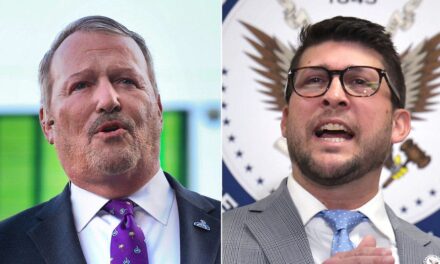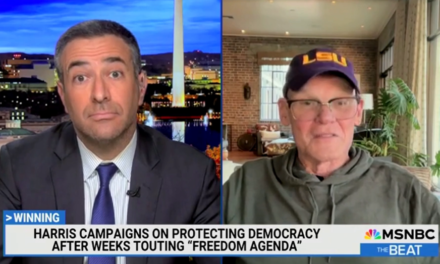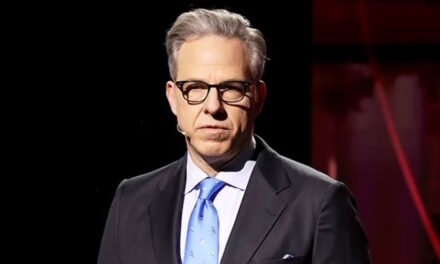In a recent statement, former President Donald Trump has claimed that Jeff Bezos, the founder of Amazon and owner of The Washington Post, expressed worries about the behavior of his newspaper’s staff. According to Trump, Bezos conveyed feelings of unease regarding what he described as “out of control” individuals working at the publication.
The assertion from Trump resurfaced during a rally in Georgia, where he has frequently spoken about the media’s critical coverage of him and his administration. The former president is known for his contentious relationship with media outlets, particularly those he perceives as hostile. In this latest claim, he pointed to a purported conversation he had with Bezos, claiming it as evidence of the internal strife within one of the most influential newspapers in the United States.
Trump’s remarks reflect his long-standing narrative that major media organizations tend to possess political biases, which he believes leads to skewed reporting. Throughout his presidency, Trump often targeted The Washington Post, describing it as a “fake news” outlet that was consistently unfair to him. He has also consistently criticized Bezos, going so far as to suggest that Bezos’s ownership of the newspaper compromises its journalistic integrity.
The former president’s remarks come amid his ongoing struggles to maintain a significant presence in the political arena post-presidency. His attempts to rally supporters often involve recounting grievances from his time in office, particularly revolving around what he sees as unfair treatment by the media. By invoking Bezos and the Washington Post, Trump aimed to reinforce his narrative that he is a victim of a biased press.
In his comments, Trump also mentioned his disdain for the notion that the media holds significant power, particularly through platforms like social media, which often amplifies their narratives. He expressed that he believes many journalists at the top levels of organizations like The Washington Post are not simply reporting the news but actively promoting political agendas.
Bezos’s ownership of The Washington Post has been scrutinized since he acquired it in 2013. Critics allege that his involvement raises questions about the objectivity of the newspaper, although these claims are often negated by proponents who argue the publication has retained its journalistic integrity. The split opinions on the matter highlight the ongoing debate over the relationship between media ownership and journalistic practices.
Despite the contentious nature of Trump’s statements, The Washington Post continues to be regarded as one of the most prominent news outlets in the country, often credited with breaking significant news stories and providing in-depth reporting on crucial issues. The publication has also won numerous awards for its journalism, further complicating claims that it is merely a platform for biased narratives.
In recent years, the media landscape has faced significant changes, particularly with the rise of social media platforms and citizen journalism. This shift has made it increasingly difficult for traditional publications, including The Washington Post, to maintain their relevance in a world where information is quickly disseminated across various channels, sometimes with little fact-checking or editorial scrutiny.
The challenges facing major media organizations have been amplified by political polarization in the United States. Many Americans have become entrenched in their media consumption, often gravitating towards sources that align with their viewpoints. This trend raises questions about the future of independent journalism and the role that large media organizations will play going forward.
Trump’s comments about Bezos and The Washington Post may resonate with certain segments of the population who share his distrust of mainstream media. However, it remains to be seen how this type of rhetoric will influence public opinion, especially given that many Americans have differing views on the importance and responsibility of the press in a democratic society.
Furthermore, the former president’s focus on Bezos indicates a strategic move to tap into a wellspring of discontent regarding wealth inequality and corporate influence in politics. By framing Bezos as a symbol of corporate power and influence over media narratives, Trump effectively aligns himself with populist sentiments that critique the role of money in political reporting.
The back-and-forth between Trump and Bezos underscores larger themes within American society regarding the relationship between business and media, as well as the trustworthiness of information sources. As the election cycle ramps up, expect to see more engagement from both sides of the media spectrum, with figures like Trump challenging the integrity of major publications and the individuals who own them.
Ultimately, the dialogue surrounding Trump’s allegations will likely evolve as more public discourse takes place. The media’s role—and its relationship with significant business figures like Bezos—will continue to be a topic of heated discussion, particularly as the complexities of modern journalism and democracy continue to unfold.
In conclusion, while Trump’s allegations about Bezos’s concerns may highlight some discord within The Washington Post, they also bring to light larger issues related to ownership, journalistic integrity, and public trust in the media. As political dynamics shift and evolve, these conversations will become increasingly important in understanding the landscape of American media and its influence on politics.
































